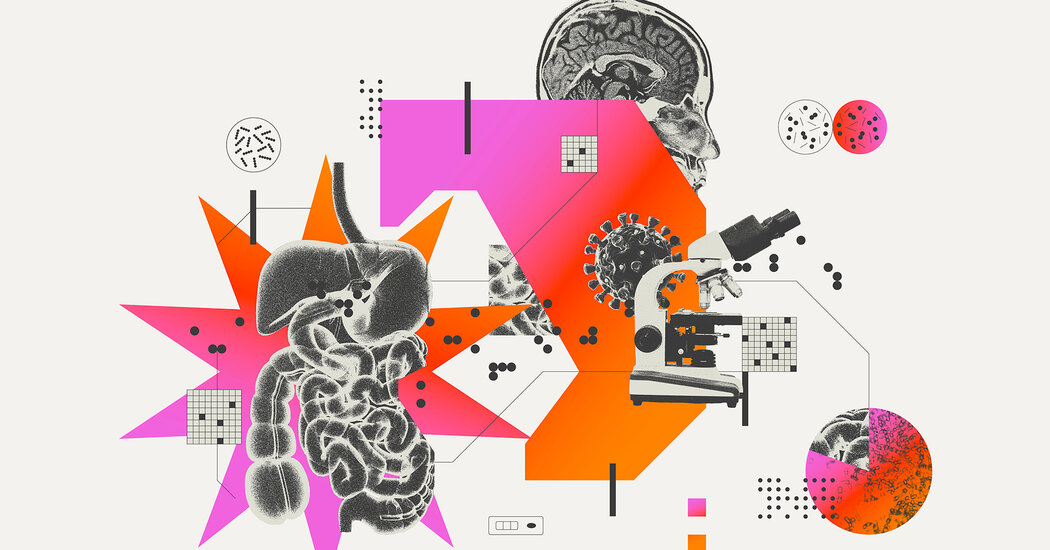Diarrhea, constipation, pain, bloating: We asked experts why the virus causes these issues and what to do about them.
Food used to be a daily source of joy for Sarah Carter. A self-described “vegetable head” in San Mateo, Calif., she loved perusing farmers’ markets, tending her garden, cooking elaborate meals and exploring Bay Area restaurants.
That changed in October 2023, when Ms. Carter, 36, had Covid for the first time. Her main symptom, diarrhea, became so relentless that she had to take an ambulance to the emergency room. Her blood pressure and heart rate spiked from severe dehydration, and she needed intravenous fluids to treat it. She was sent home and endured three more days of diarrhea before she finally felt like herself again.
That is, until April 2024, when she felt as if she “inherited a new GI system overnight,” she said. Nearly everything she ate, even bland foods like applesauce and toast, set off diarrhea. She also has had bloating and pain so severe she sometimes feels as if acid is running through her intestines.
In May, a gastroenterologist diagnosed Ms. Carter with post-infectious irritable bowel syndrome. It’s a common disorder that results in symptoms of I.B.S. — abdominal pain along with diarrhea, constipation or both — after food poisoning or other gastrointestinal illnesses. Her doctor said that her coronavirus infection six months earlier was most likely the cause.
Gastroenterologists say that since the start of the pandemic in 2020, they have noticed an uptick in I.B.S. and other painful and often puzzling gut conditions like Ms. Carter’s, with many seeming to have been caused by previous coronavirus infections. We don’t have good estimates for what percentage of people with Covid go on to develop persistent gastrointestinal symptoms, but some limited and small studies suggest they can be between 16 and 40 percent.
What gut issues can Covid cause?
Gastrointestinal symptoms like nausea, vomiting and diarrhea are common during the initial stages of a coronavirus infection, said Dr. William D. Chey, a gastroenterologist at Michigan Medicine. But for some people, these and other symptoms, like reflux, constipation, pain and bloating, can stick around for months or even years.
